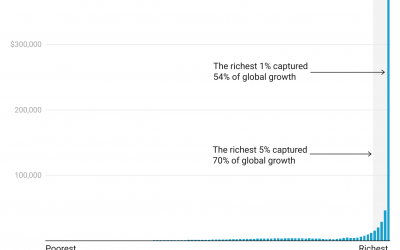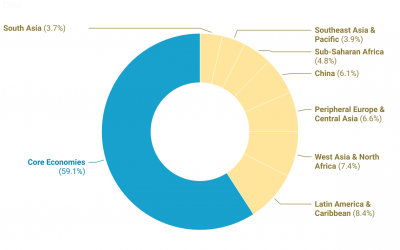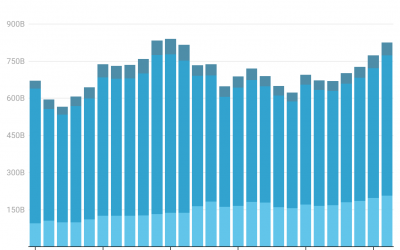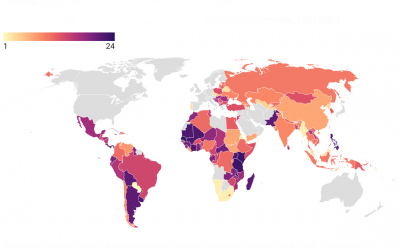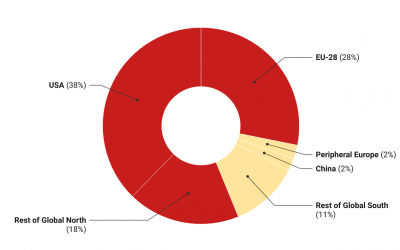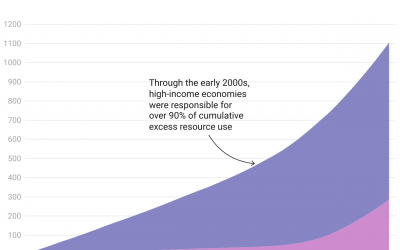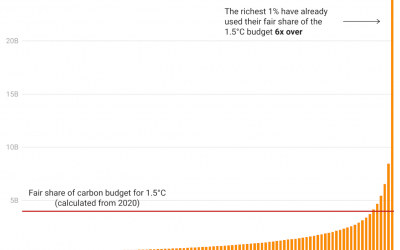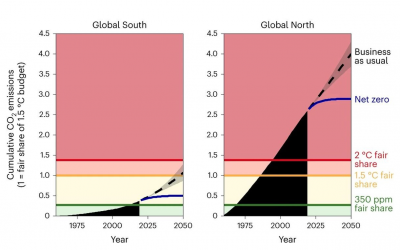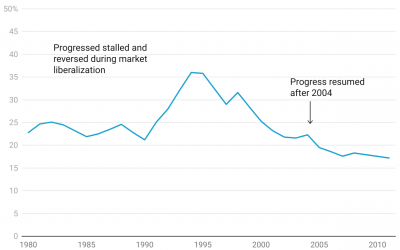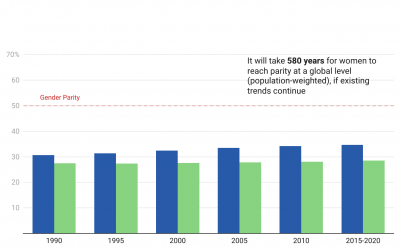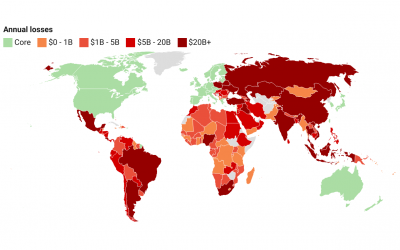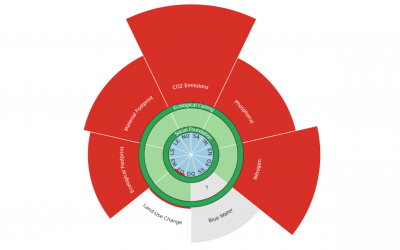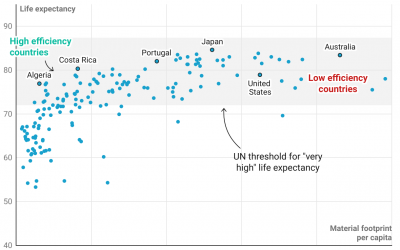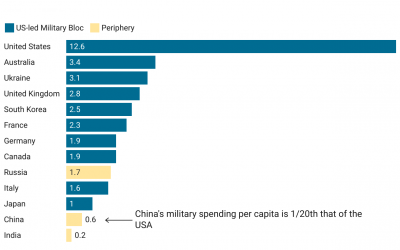
We live in a world where a few people capture unimaginable wealth while billions are denied access to basic needs. Such extreme inequality is not natural or inevitable. It is an effect of the dominant economic system, capitalism, where production is controlled mostly by capital and organized around maximizing and accumulating profit, rather than securing human well-being.
Capital accumulation requires cheapening labour and resources, particularly in the global South. This produces inequalities between classes and leads to uneven development between regions. It also drives ecological breakdown, and while some benefit from the exploitation of our planet’s ecosystems, others suffer the damages.
Explore the data
Global Income Inequality
Production in the global economy relies on the labour of workers around the world, and the resources of our common planet. But the yields of our production are captured overwhelmingly by a small elite, who determine how labour and resources are used, and how our...
Global Economic Governance
The institutions of global economic governance are highly unequal. The core states enjoy the overwhelming majority of voting power and bargaining power, allowing them to determine the rules of international trade and finance in their own interests. The...
Unequal Exchange
Short description
Structural Adjustment
The success of the anti-colonial movements in the middle of the 20th century triggered a crisis in the core states, as it constrained their access to cheap labour and resources. In the 1980s, they retaliated to restore the colonial structure of the world economy. For...
Responsibility for Climate Breakdown
Rich countries are responsible for the vast majority of the excess emissions that are causing climate breakdown, while the impacts fall disproportionately on communities in the global South. The climate crisis is playing out along colonial lines.Climate breakdown is...
Responsibility for Excess Resource Use
The global economy is overshooting sustainable levels of material resource use by a factor of two, driving ecosystem damage and ecological breakdown. Not everyone is responsible for this crisis. It is being caused overwhelmingly by excess resource use in high-income...
Carbon Inequality
Climate change is class war. This crisis is being caused overwhelmingly by the global rich, who have extremely high personal emissions and who exert disproportionate control over the economic system.The facts about carbon inequality are staggering. This graph shows...
Climate Reparations
Over-emitting countries hold responsibility for climate breakdown and owe reparations to low-emitting countries for atmospheric appropriation and climate-related damages.Global emissions exceeded the planetary boundary in 1988 and the world is now nearing 1.5 degrees...
Global Poverty
Extreme poverty is not a natural condition. It is an effect of economic systems that appropriate labour and resources, or divert them away from meeting local needs in order to facilitate elite accumulation.The World Bank claims that the share of the global population...
Gender Inequality
Capital accumulation requires cheapening labour. Women suffer this pressure disproportionately, as ideologies of patriarchy and sexism are leveraged to deny them full rights. The result is large and persistent gender inequalities in income, education and political...
Debt and Financial Outflows
Debt is often leveraged by international capital to control economic policy in global South countries, and to impose claims on Southern labour and resources. The South also suffers losses from other financial outflows.In 1980, the US Federal Reserve hiked interest...
Planetary Doughnuts
The global economy massively overuses resources and yet still fails to meet basic human needs. This occurs because production is organized around corporate profit and elite accumulation rather than human well-being.In 2012, the economist Kate Raworth created the...
Sustainable Development
The ecological crisis poses a forceful challenge to the dominant paradigm of economic growth. In the 21st century, the goal of development must be to achieve strong social outcomes within planetary boundaries.The Human Development Index (HDI) was created in the 1990s...
Imperial Power
The core-periphery structure of the capitalist world economy is ultimately maintained by force. The core states project coercive power around the world, with the primary objective of curtailing the sovereignty of global South countries and maintaining access to...
Notes
Methodological Notes The links below provide further information on key methodological approaches used across the Global Inequality Project website. 1. Country groups and aggregates 2. Currency concepts 3. The GIP national income dataset 4. Time series of global...
